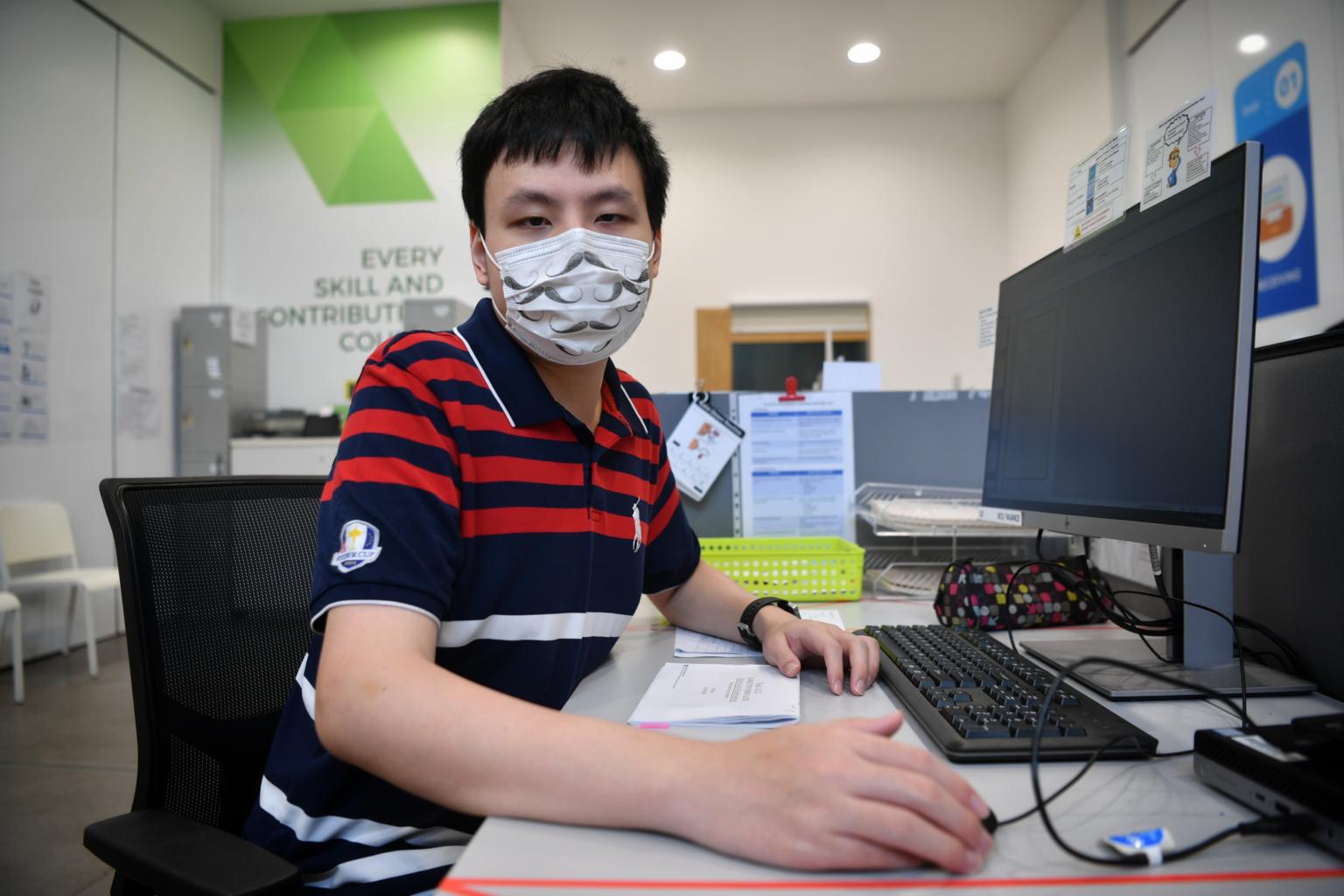MOE to revise vocational curriculum at special ed schools to better build soft skills for work
Sign up now: Get ST's newsletters delivered to your inbox

Persons with disabilities like Mr Elliot Goh will get more vocational support.
ST PHOTO: CHONG JUN LIANG
Follow topic:
SINGAPORE - After months of training at the Autism Resource Centre's Employability and Employment Centre (E2C), Mr Elliot Goh secured a job as a digital services assistant with the National Library Board last month.
This came after more than two years after he graduated from ITE, as the 21-year-old needed extra support and coaching to boost his soft skills.
Persons with disabilities such as Mr Goh will get more vocational support to prepare them for life after special education, a key concern for persons with disabilities and their caregivers.
The employment workgroup under the Third Enabling Masterplan said on Wednesday (April 14) that it was calling for a stronger emphasis on the development of soft skills and training in authentic work settings in special education schools. This would help strengthen vocational education curriculum.
This was among 10 recommendations it unveiled on Wednesday, alongside the independent living workgroup which proposed 11 recommendations.
Acting on this recommendation, the Ministry of Education will be revising the vocational education curriculum in special education schools to further emphasise the intentional development of soft skills for work.
Ample opportunities will be provided for all students to train in authentic work settings so that they can better develop these skills.
Through actual hands-on practice in mock-up settings in schools or workplaces, students can get used to what would be possible workplace culture and expectations in jobs they would apply to.
Mr Goh, who has autism spectrum disorder, graduated from the Institute of Technical Education (ITE) with a Nitec in visual effects in December 2018.
As he felt held back in his job search by his difficulties in understanding others and expressing himself, he approached E2C in October 2019 for help in finding a job.
E2C helped him to get ready for employment, placing him in an authentic work setting since the end of 2020 where he learnt to work with the various machines required in his role as a digital services assistant, where he has to scan and digitise books.
"With support from E2C and my job coach, I also learnt to follow instructions and accept corrections calmly. I also learnt to talk softly at work," said Mr Goh.
The average unemployment rate for persons with disabilities here aged 15 to 64 was 11.7 per cent in 2019 to 2020, higher than the unemployment rate of 4.7 per cent for non-persons with disabilities.
The employment workgroup also recommended developing employment hubs with accessible facilities where employers and persons with disabilities can tap on shared services such as consultations with job coaches.
Other recommendations by the workgroup include building up capabilities of Disability Employment Professionals to serve a broader spectrum of needs and disabilities of students from both special education schools and institutes of higher learning.
Another proposal was to build up a library of resources that employers and co-workers can tap on to create an inclusive workplace.
Ms Denise Phua, who co-chaired the employment workgroup with Minister for Social and Family Development Masagos Zulkifli, said that soft skills are just as important as hard skills for persons with disability to procure and sustain employment.
She added: "Whatever model (of job support) we come up with in our country, we must have in mind that there's a whole range of persons with disabilities who are different, who need different degrees of support and different types of training.
"More importantly, they have to continue to learn for life, not just within the school walls and within the classroom."

